News and Awards
- Awards and Achievements
- In Memorium
- Alumni News
- In the News
Pandemic Bread is a short dramatic film By Professor Zeinabu irene Davis about a Filipino interpreter taking an end-of-life call with a doctor and an elderly woman diagnosed with COVID in her quarantined hospital room. This is a story of resilience, agency, and hope told through the eyes of the interpreter who bakes bread during the call. The film involves a unique collaboration with the San Diego Filipino community, UCSD students, and film professionals. By coming together to creatively express COVID-related experiences, this film offers an artistic vehicle of catharsis to aid in collective healing.
Pandemic Bread made its world premiere on May 11th, 2023 at the Los Angeles Asian Pacific Film Festival to a sold out audience in downtown Los Angeles. It will be making its East Coast premiere at the Blackstar Film Festival on August 2nd in Philadelphia, PA. This is Prof. Davis’s first narrative film since her award winning feature Compensation (1999). The film is produced by graduate candidate Nicoletta Vangelisti.
On April 5, 2023, the Board of Trustees of the John Simon Guggenheim Memorial Foundation approved the awarding of Guggenheim Fellowships to a diverse group of 171 exceptional individuals– UC San Diego’s Patrick Anderson being among the recipients.
The Guggenheim will be supporting Patrick Anderson’s ongoing community-based research on policing, in particular writing a book in which he uses methods from the arts, humanities, and social sciences to understand police practices and the lived realities of communities who disproportionately experience police encounters and police violence.
Guggenheim Fellowships are intended for individuals who have demonstrated exceptional capacity for productive scholarship or exceptional creative ability in the arts and exhibit great promise for their future endeavors.
On June 10, 2022, we celebrated the retirement of Distinguished Professor Daniel Hallin at Bread and Salt with friends, family, and colleagues. We heard stories and accolades from Dean Carol Padden, Robert Horwitz, Boatema Boateng, Gary Fields, Antonieta Mercado (University of San Diego), and Charles Briggs (UC Berkeley).
A short video was screened compiling the testimonials of current and former graduate students and colleagues produced by Patty Ahn and Bobby Shibo. Dan received collective gifts and cards from the department and enjoyed an evening of camaraderie.
Congratulations, Dan!
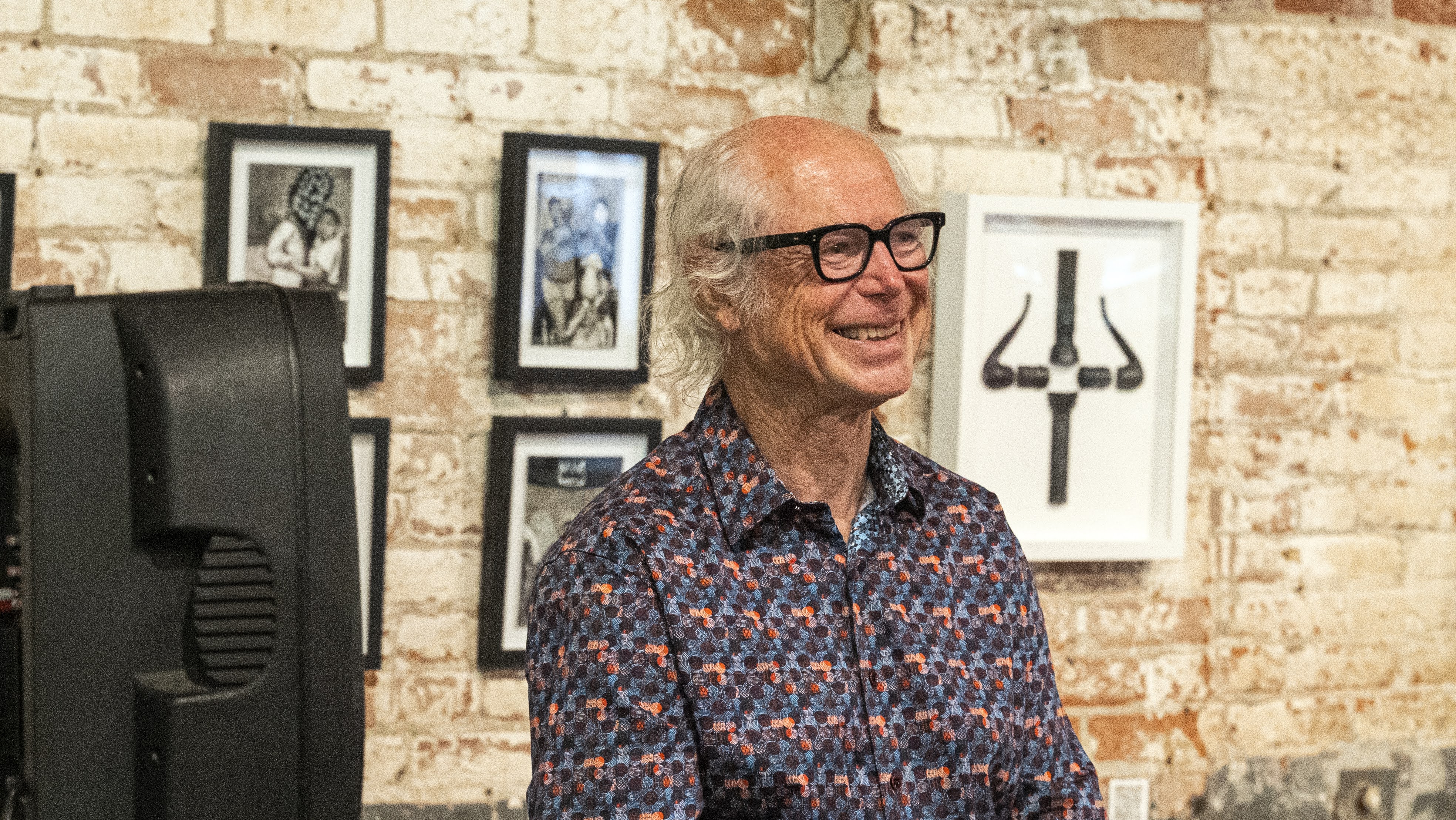
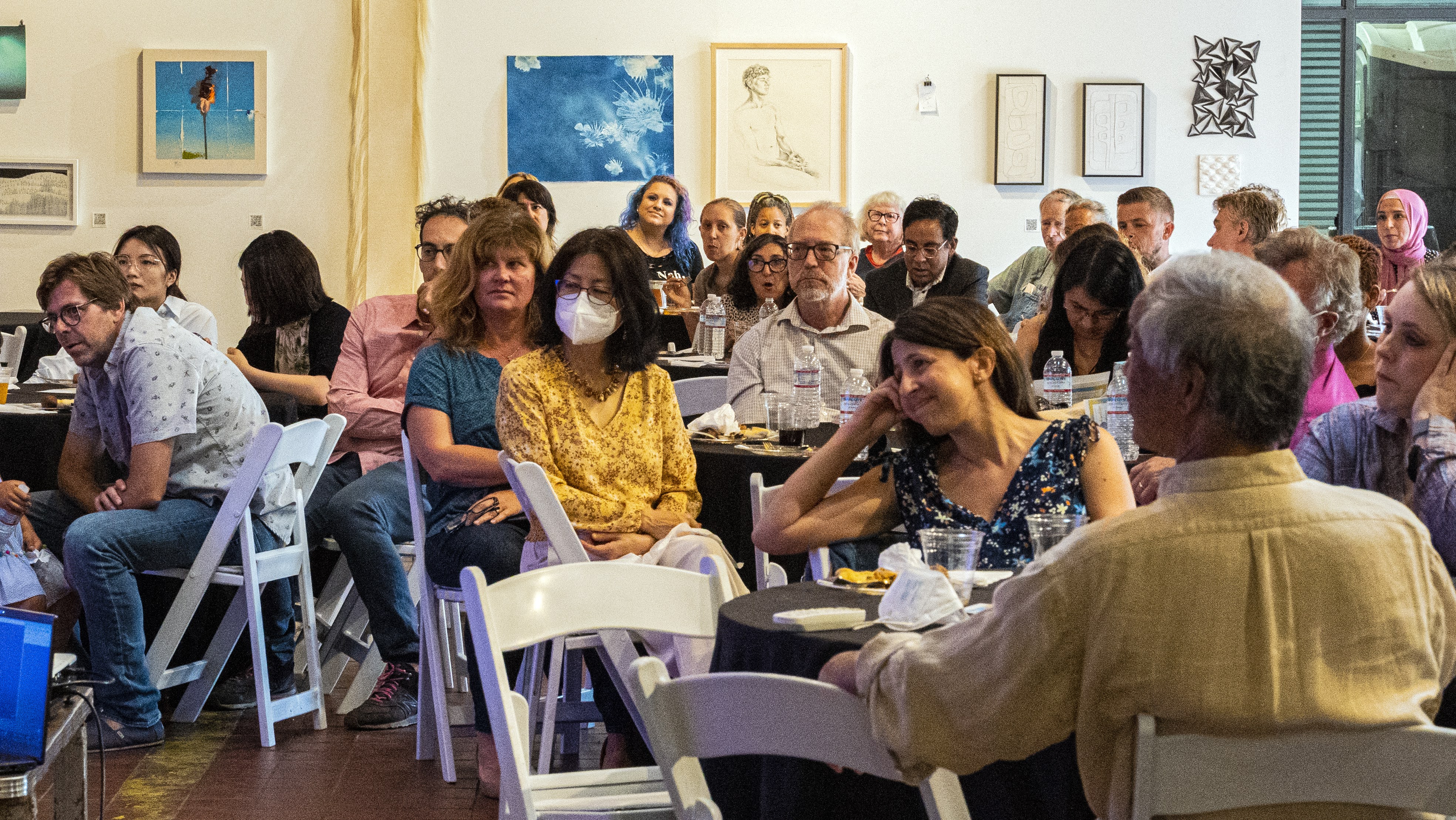
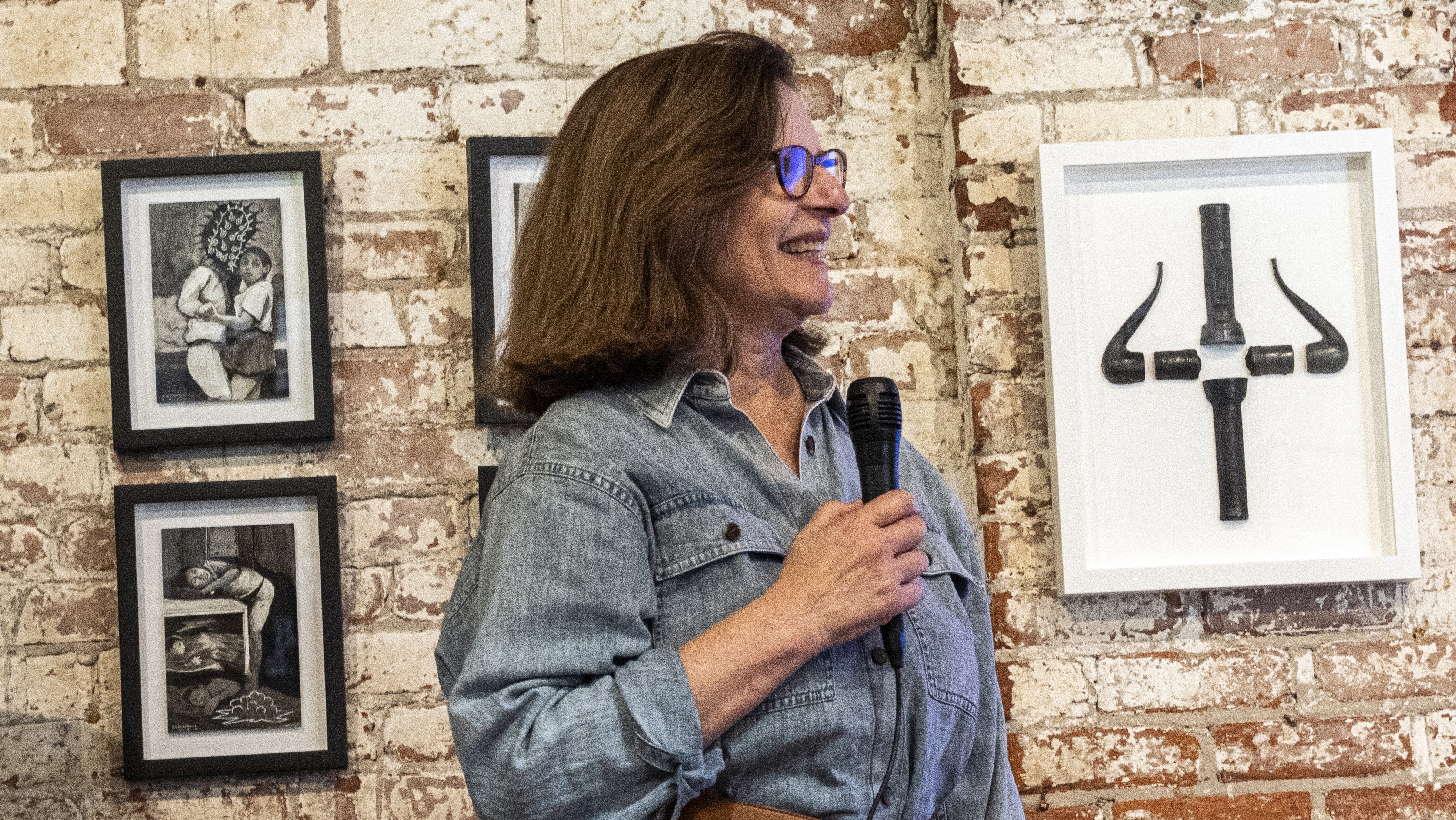
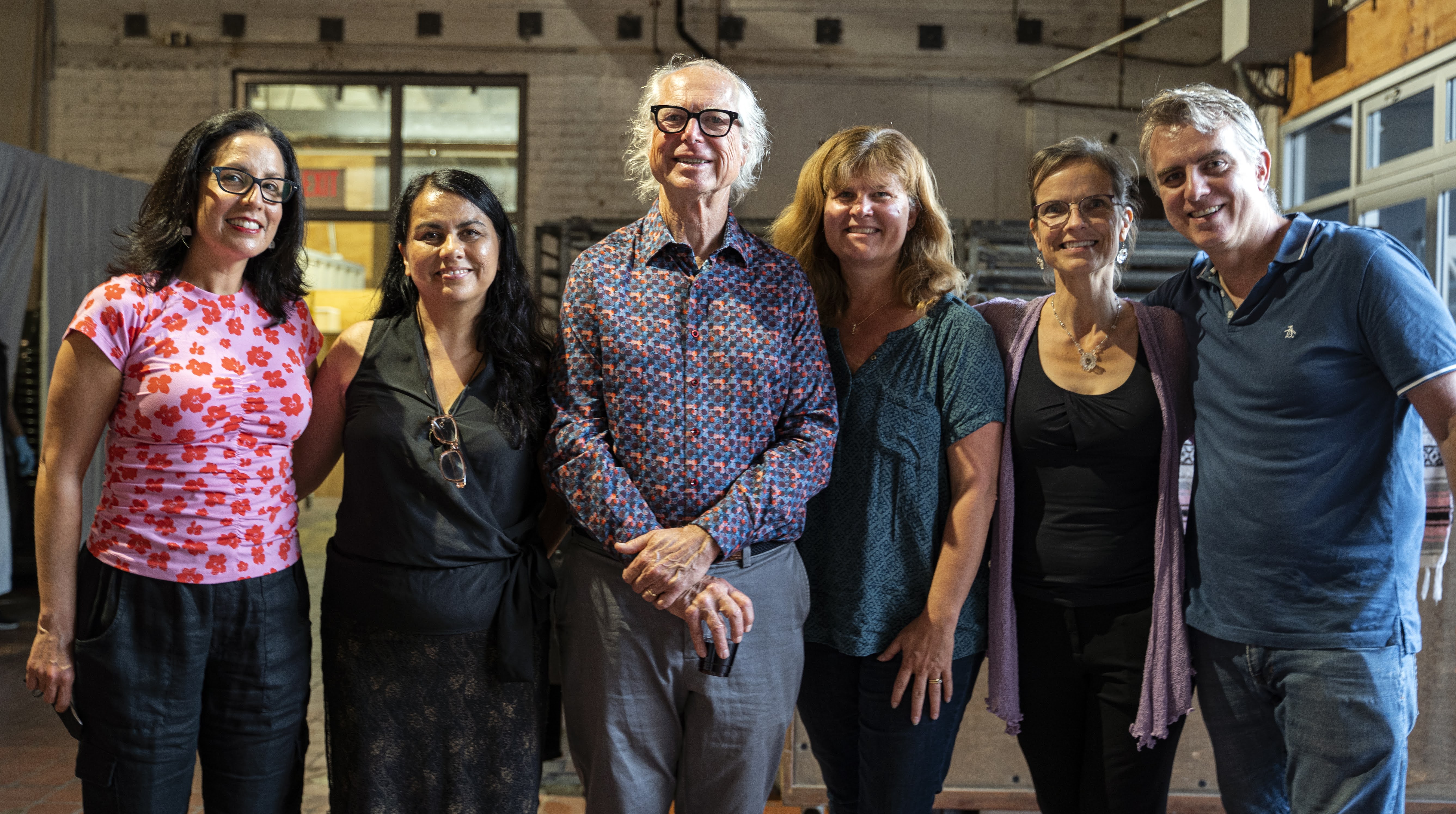
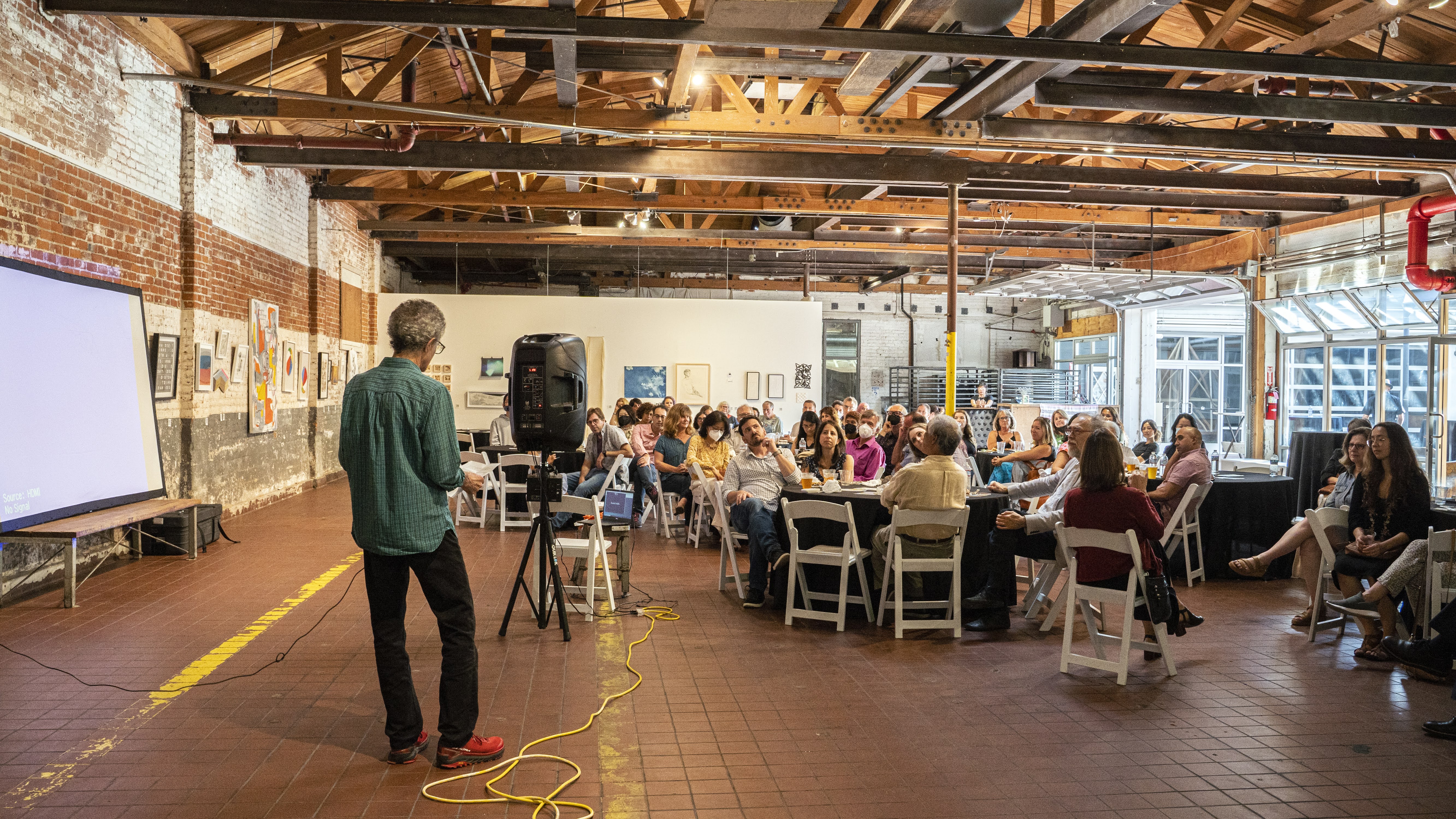
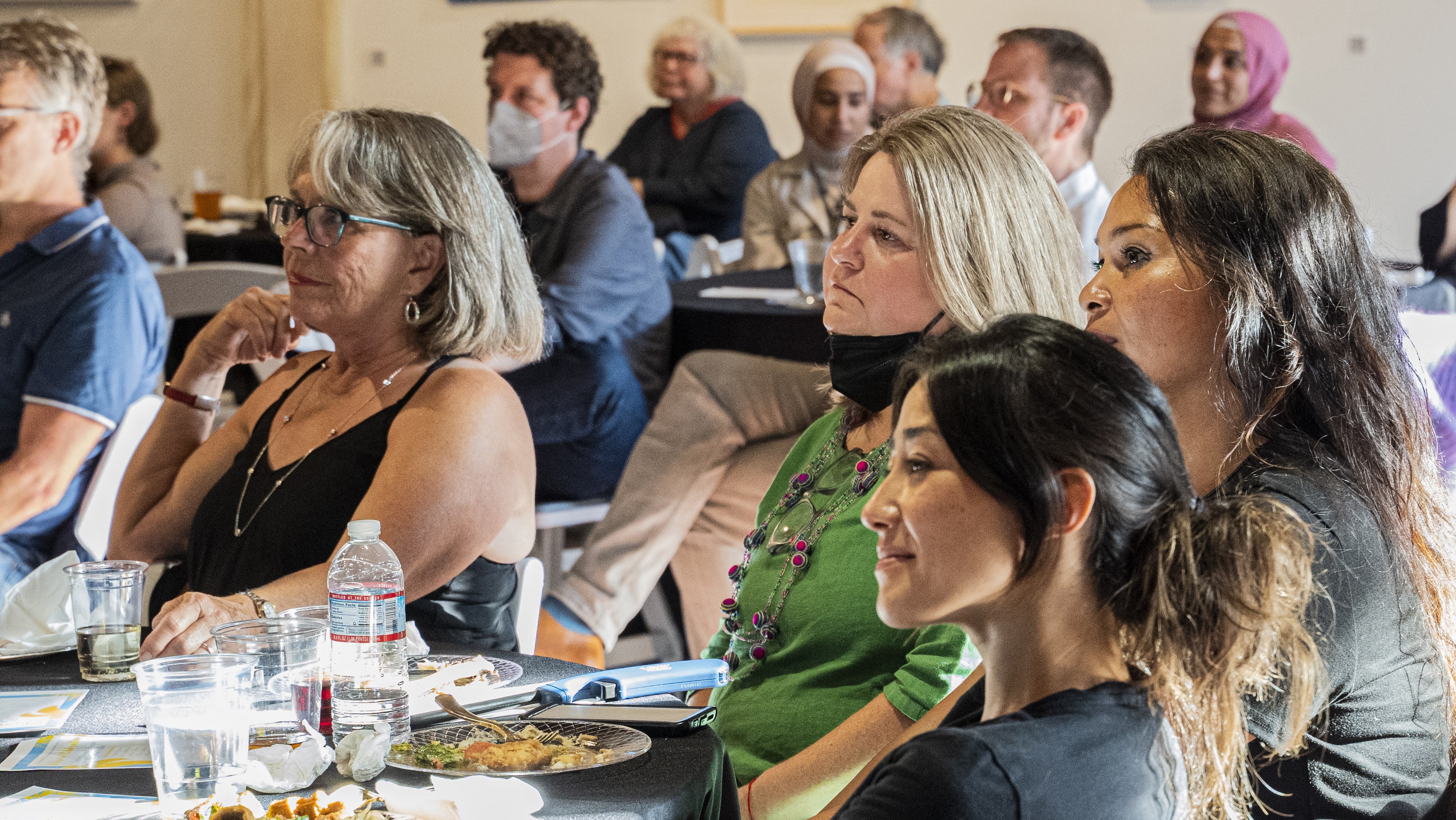
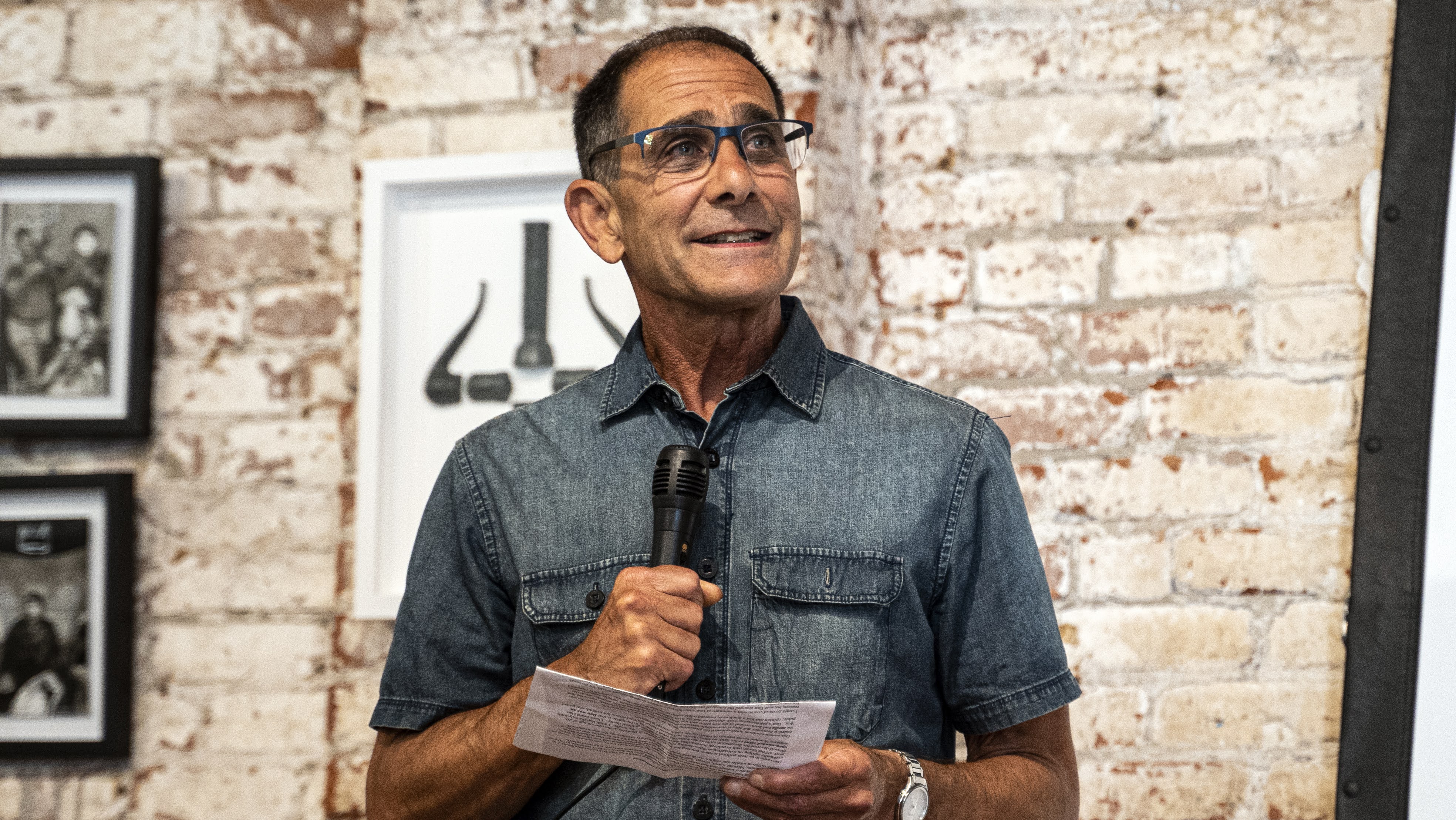
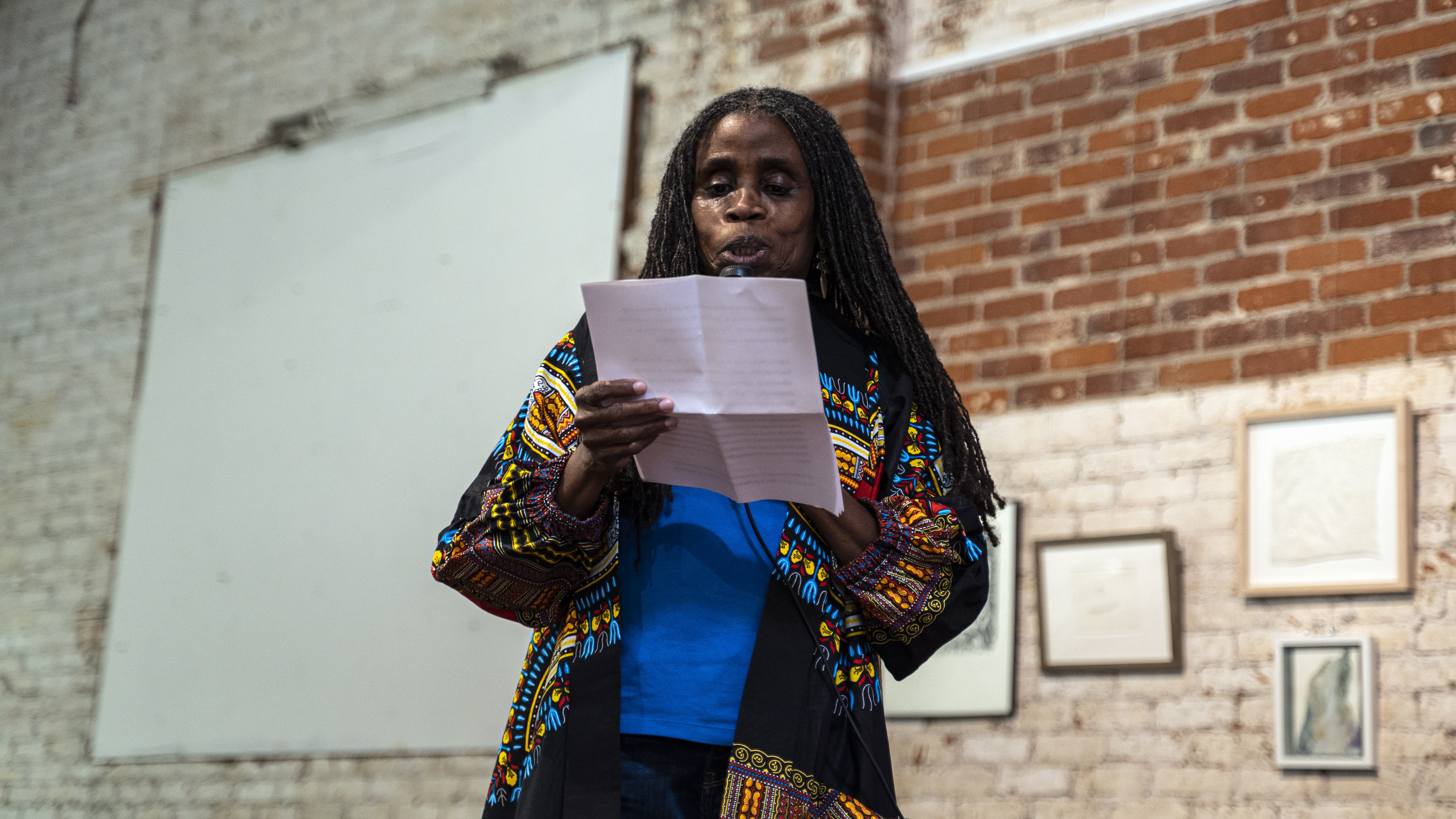
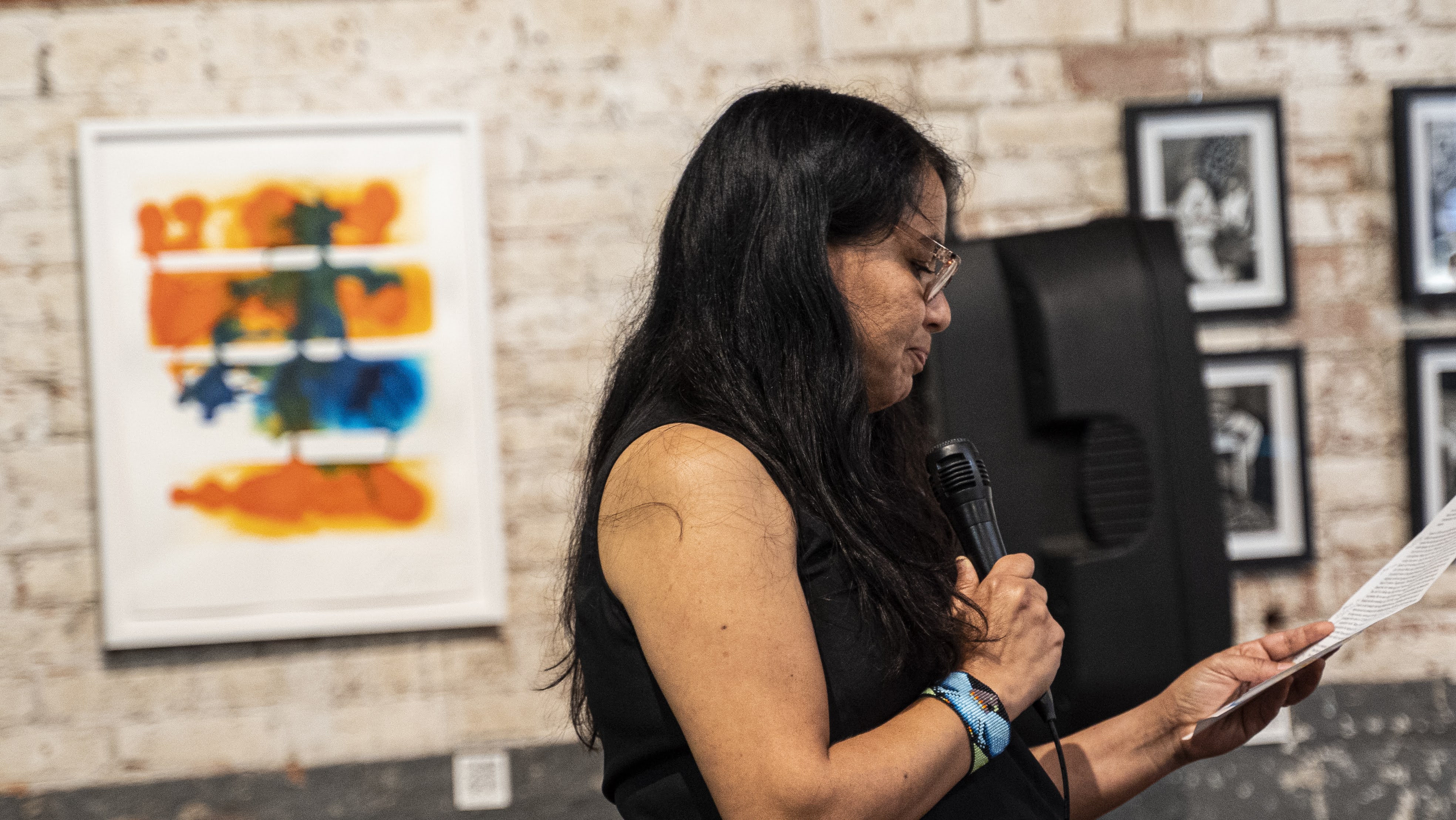
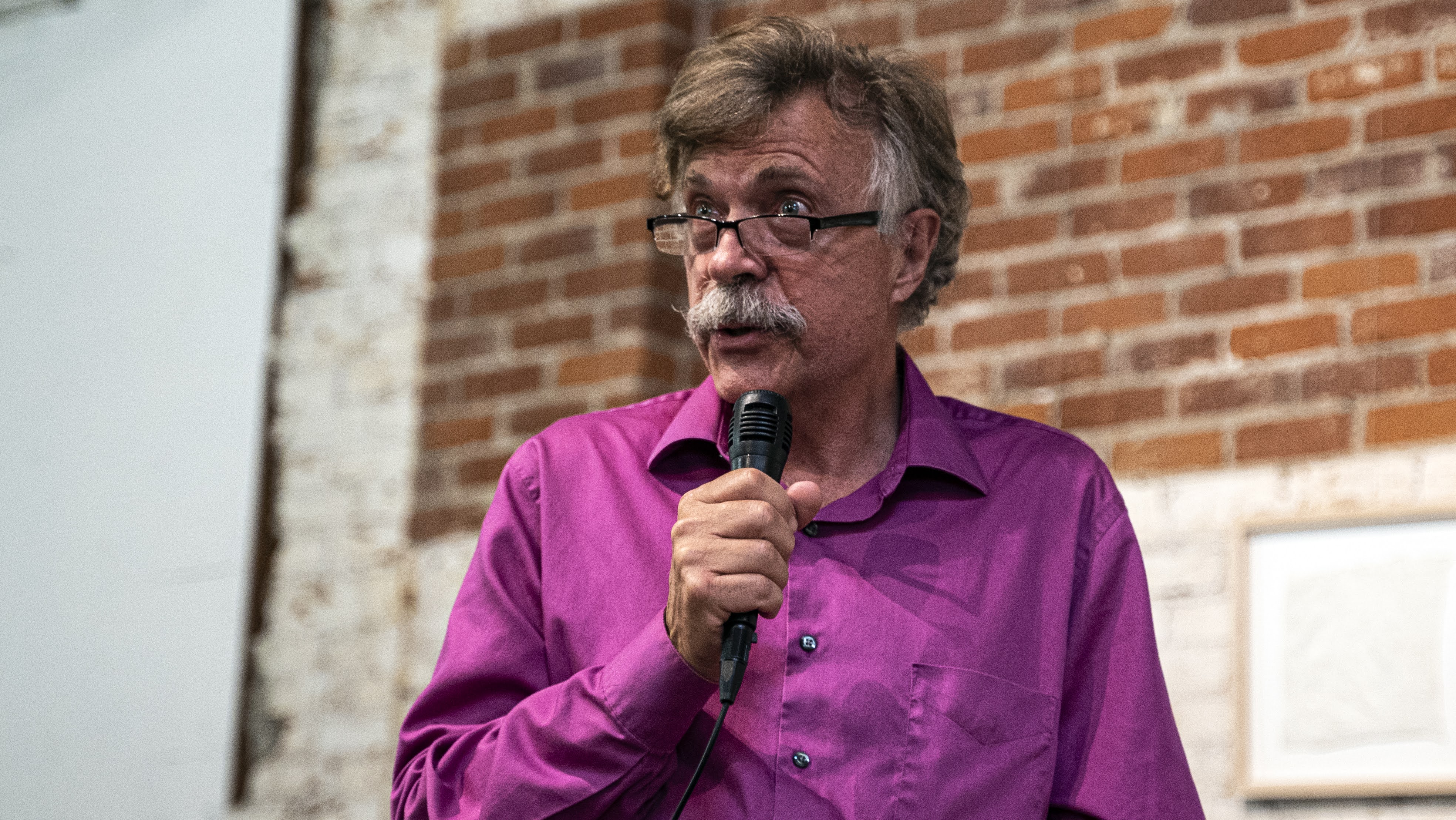
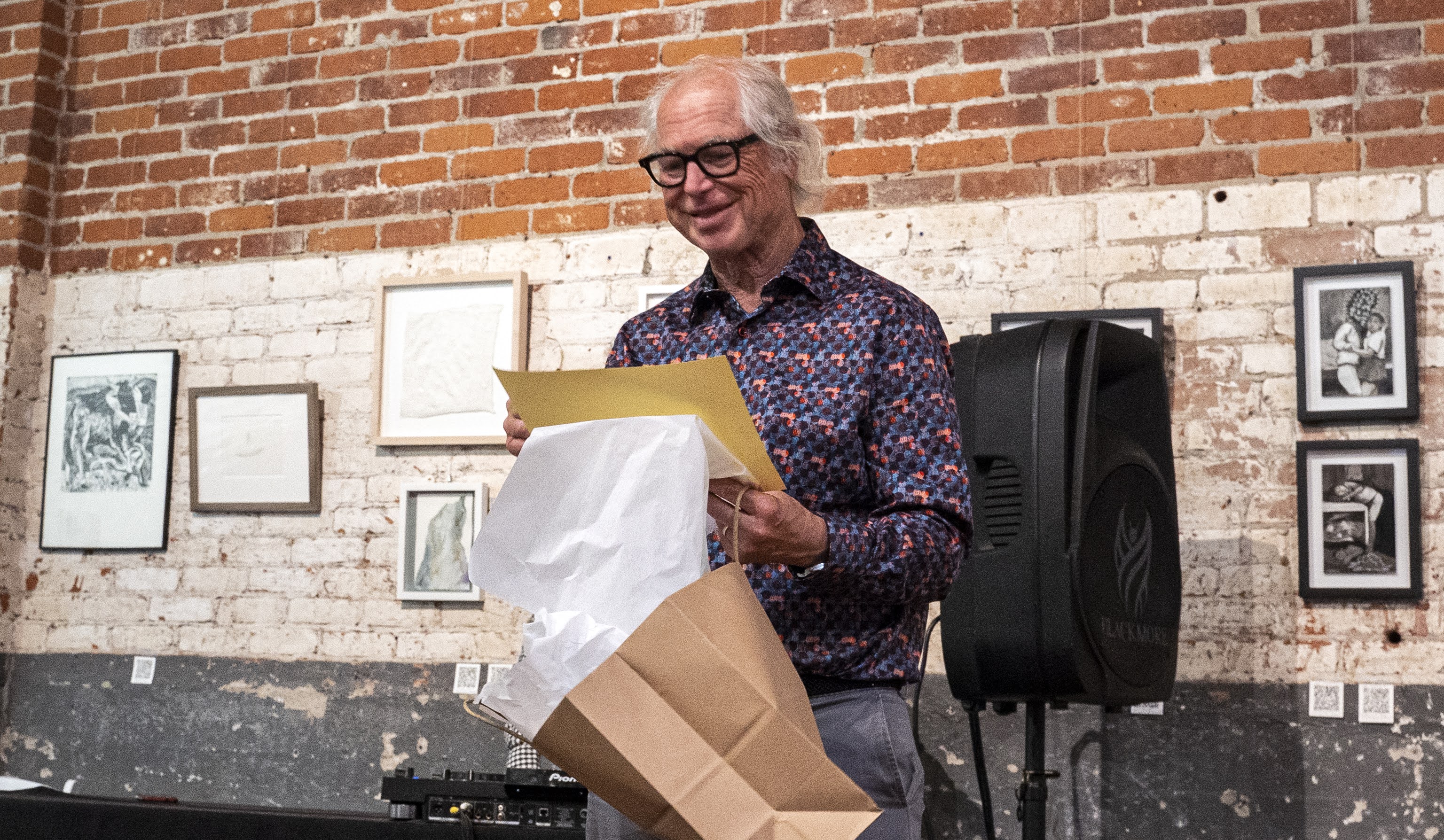
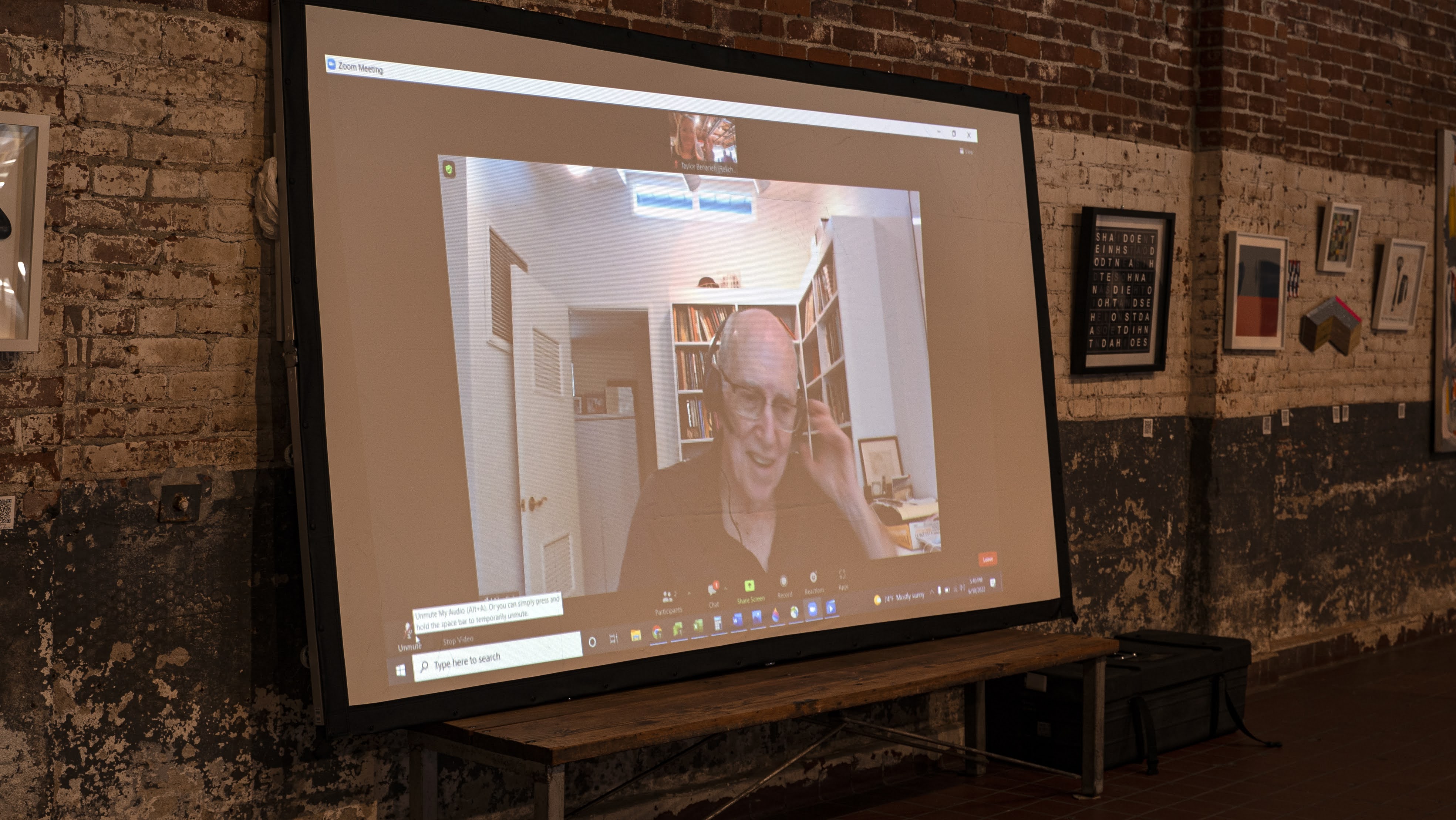
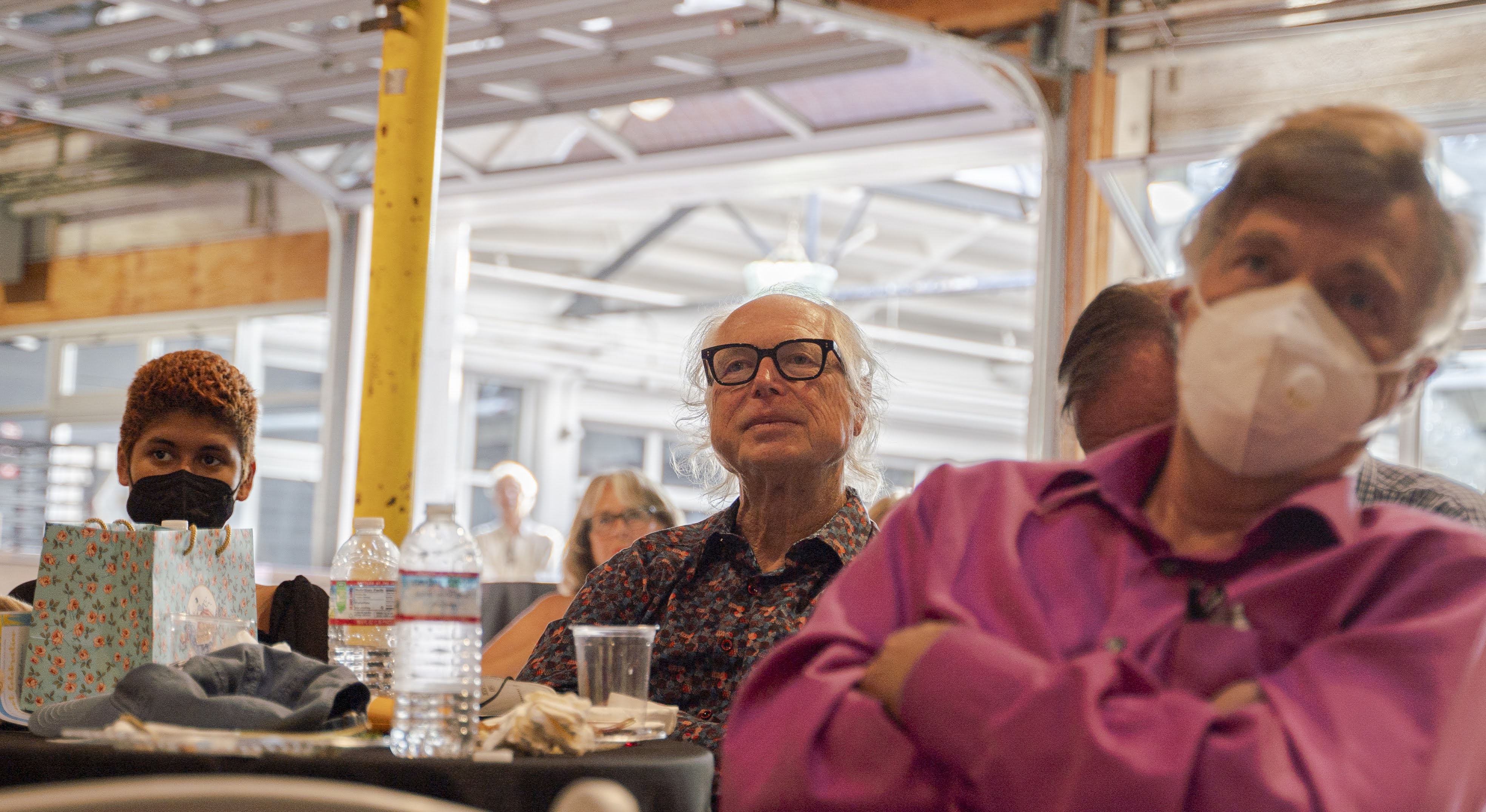
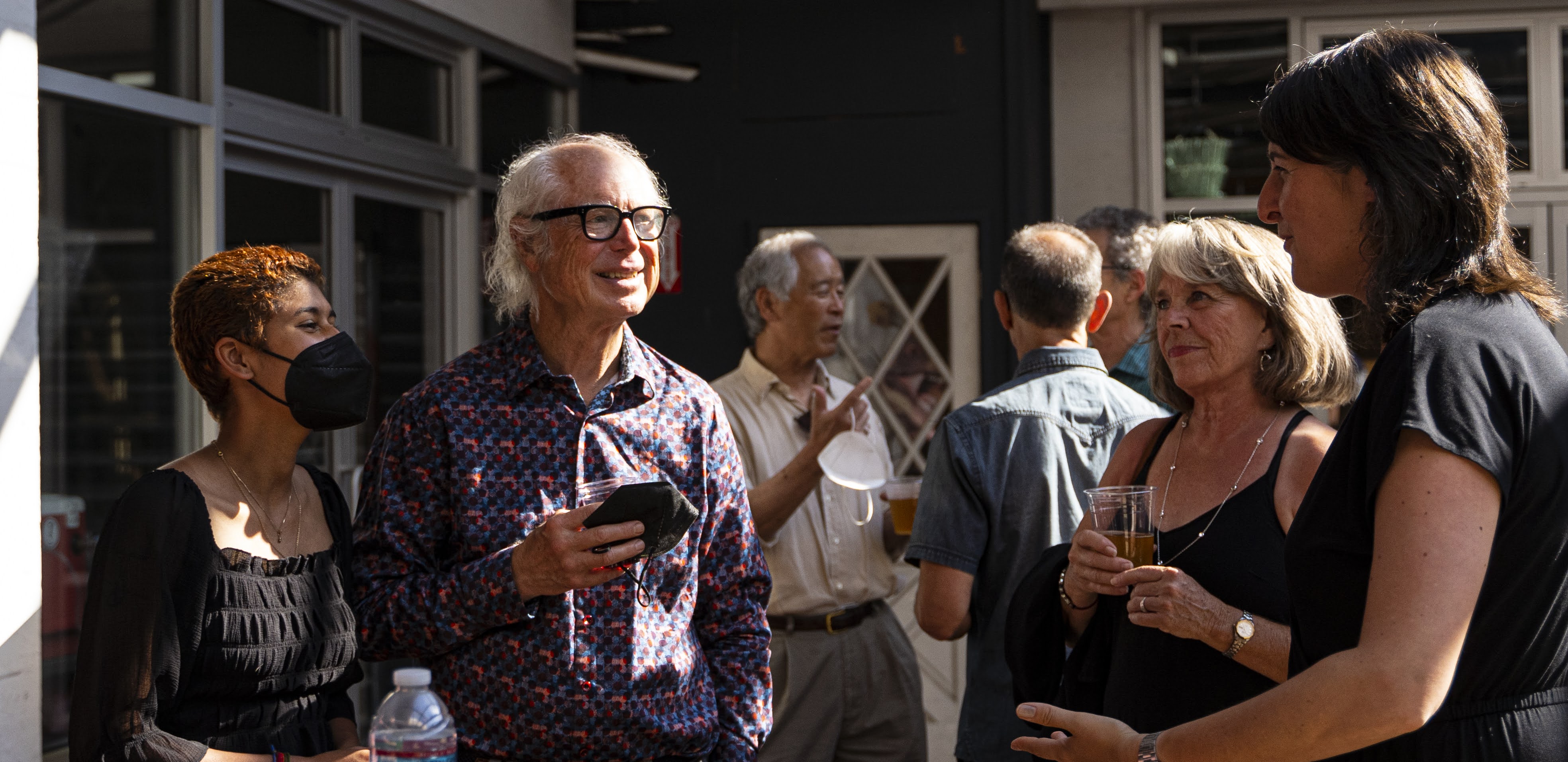
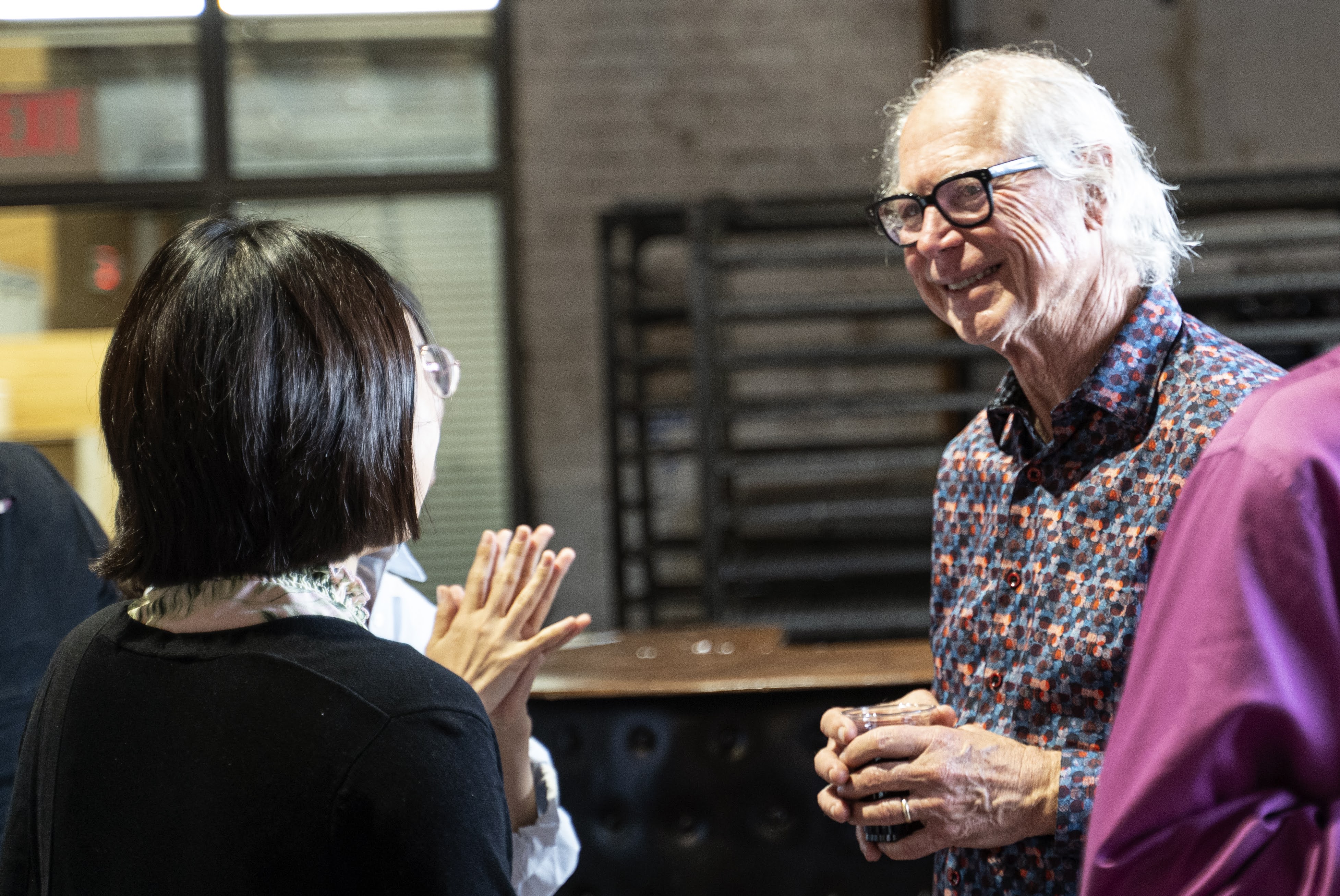
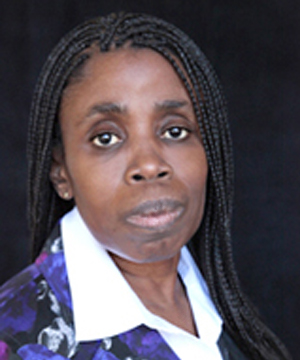 Dr. Boateng was selected from the nominations based on a combination of factors, including student testimonials, innovative or unusual mentoring practices, and other considerations, such as mentees served and years of service as a mentor to undergraduates. Students from the TRELS, McNair, and Faculty Mentor Programs are invited to nominate their mentors for the award. This year's awards will be presented at the Online Undergraduate Research Symposium.
Dr. Boateng was selected from the nominations based on a combination of factors, including student testimonials, innovative or unusual mentoring practices, and other considerations, such as mentees served and years of service as a mentor to undergraduates. Students from the TRELS, McNair, and Faculty Mentor Programs are invited to nominate their mentors for the award. This year's awards will be presented at the Online Undergraduate Research Symposium.
Dr. Boateng had this to say about her experience:
"At its best, mentoring is like a journey of discovery in which I travel alongside students. Through the conversations we have around their work, I help them develop their skills and guide them toward their goals. Most importantly, I help them discover the brilliance that lies within them. One of my greatest joys as a mentor comes from witnessing the transformation as students go from struggle to mastery of their subject and their craft."
Zeinabu Davis, has received a Spark Award in support of her Sojourner hybrid documentary project. This was a competitive award process, supported through the NEH and an important honor that will be instrumental in helping her on the road to completing the film. There were over 200 applicants, and they are providing $50,000 to each of 36 projects. Read more at this link: https://firelightmedia.medium.com/firelight-media-announces-spark-fund-recipients-ca6256194020
Christina Aushana (2020) has been awarded The University of California President’s Postdoctoral Fellowship Program. She will be working in the Department of Sociology, University of California, Santa Barbara with Geoffrey Raymond, Professor of Sociology and Nikki Jones, Professor of African American Studies, University of California, Berkeley.
Aushana's dissertation was entitled: Screening Racial Visions, Scripting State Violence: The Performance and Visual Culture of Patrol Work and Police Training in San Diego and her committee members were Elana Zilberg (Chair), Patrick Anderson, Lisa Cartwright, Ricardo Dominguez, Kelly Gates, Roshanak Kheshti.
Graduate Student Akshita Sivakumar was awarded the DATA ANALYTIC IPE PhD Fellowship from the he Institute for Practical Ethics for her project which queries the ethics of data-driven information technology and practices within environmental governance and justice efforts in the implementation of Assembly Bill 617 in California. Congratulations Akshita!
Alumna and Bylo Chacon Postdoctoral Fellow Dr. Caroline Collins premiered the first episode of a six-part Cal Ag Roots podcast which she wrote and produced, We Are Not Strangers Here: African American Histories in Rural California, on February 9th, 2021. This series highlights hidden histories of African Americans who have shaped California’s food and farming culture from early statehood to the present.
“We’re reframing California history to more accurately represent the past. We’re discussing the events that actually took place, the people who were actually here, and the things those people did. If you represent that past accurately then you have a story that is about rootedness and groundedness. It’s about how Black people are not strangers to California.”
You can listen and share this podcast at this link. Episodes are roughly 25 minutes and premiere Tuesdays through March 16, 2021.
We Are Not Strangers Here is a collaboration between Collins and Susan Anderson of the California African American Museum, the California Historical Society, Exhibit Envoy and Amy Cohen, and the Cal Ag Roots Project at the California Institute for Rural Studies. This project was made possible with support from California Humanities, a non-profit partner of the National Endowment for the Humanities, and the 11th Hour Project at the Schmidt Family Foundation. The podcast accompanies an upcoming traveling exhibit (as well as an in-progress digital version produced in response to COVID-19 with the assistance of the California African American Museum).
“This project began as a conversation between the Executive Director of the California Institute for Rural Studies, Ildi Carlisle-Cummins, and Susan Anderson, who is a long-time public historian of African-American history in California. At the time, Susan Anderson was at The African American Museum and Library in Oakland. She and Ildi Carlisle-Cummins discussed collaborating on a public history project that would address the long presence of Black folks in California’s rural communities. The story of Black people in the state is often told through a framework that positions them as relatively recent migrants to California--and to its urban areas in particular. They wanted to reframe that common story by sharing these undertold histories.”
As a scholar who examines how the history of the American West is made and remade, particularly in California and especially in popular culture, Dr. Collins was drawn to this multimedia project. Collins drew from her doctoral research on this topic as well as from her former dissertation committee members including Professor Zeinabu Davis and Associate Professor Angela Booker and their respective work on mediating Black histories and storytelling. Collins was also influenced by her committee chair, recently retired Professor Emerita Valerie Hartouni, whose research on visual culture helped Collins navigate the often complex ways these stories are told and retold. This podcast also ties in with her current post-doc research working with former committee member Professor Patrick Anderson on his Breathable Streets police oversight project. Collins plans on incorporating research from this podcast into her second book which will chart the symbiotic relationship between whiteness and policing in California’s popular culture.
“I was also influenced by the work of Black historians like Delilah Beasley who, for over eight years, travelled all over California talking to these early African American pioneers and trying to find and document as many records as she could in archives across the state. In 1919, she self-published this really groundbreaking book called The Negro Trailblazers of California.
Even then, at the turn of the century, Beasley realized the significance of the Western ‘pioneer story’ and all of the systemic belonging and identity and authority that comes with it. She understood the rhetorical and material implications of who gets to be counted as the state’s ‘original pioneers.’ She wanted to make sure that these early Black stories weren't overlooked.”
Collins is not only interested in highlighting these often undertold stories of California, her work also “interrogates racial formation in California through critically examining the evolving origin stories that structure popular retellings of its history.”
“It’s not often discussed, but Black people have been in California longer than Anglo Americans have been here in any significant number. Since the onset of 16th century Spanish colonization, Black folks--both enslaved and free--came to California as part of Spanish colonial parties. They participated in the colonial project. Roughly half of the 18th century settlers who founded present day Los Angeles, for example, were of African descent and a few were of full Black ancestry. By 1790, one in five California residents was Afro-Latina/o. The last governor of Alta California, Pío Pico, was actually of mixed African descent. Black people from the U.S. even became naturalized citizens of Mexican California in the 19th century. Black folks mined in California’s gold fields. They homesteaded. So at each of these important moments in Californian history--from the original occupation of Native lands to continued settler colonialism--Black people were here, part of the fabric of the region.”
Collins argues that a very different story of the Black Californian experience gets told through popular culture, one that focuses more on the 20th century’s Great Migration which brought her own relatives to this state from Texas.
“The story of the Great Migration of the 20th century is an important part of African American history in the state but it doesn’t represent the actual origins of Black folks and people of African descent in California. So as a scholar of Communication who studies California’s origin story, I’m interested in how these stories have been erased from public memory and how California has come to be read as white. For instance, one of the questions my dissertation pursued was how various popular culture products helped position Mexican Californians as ‘outsiders.’ Along these lines, this project helps me examine how and why Black Californians have been read solely as ‘late arrivals’ who came in the 20th century around World War II.”
This podcast offers insight into current events as well. Collins sees the recent insurrection at the Capitol as reflective of these reworked narratives regarding belonging in the United States.
“Consider a major question we're negotiating today: How could armed insurrectionists storm the Capitol and not be immediately restrained? Among all sorts of other nuances and contributing factors, we also can’t ignore the significance of cultural narratives and how certain groups, namely white folks, have socially, economically, and politically benefited from being part of origin stories that associate them with tales of ‘strong pioneers’ and cast them as descendants of hearty folks who were allowed, and expected, to push up against the rules, to take up arms, and to carve out a nation where there was ‘none’ before. That narrative carries a cultural inheritance that justifies all sorts of actions--including those deemed necessary to pursue on behalf of securing the nation and its ownership. Those are all things I examine in my first book manuscript when I discuss what I call America’s ‘pioneer identity.’”
Using her own experiences growing up with family stories and photos of the 19th century American West that weren’t always reflected in popular culture, Collins also aims to celebrate the diverse narratives that Black communities already share through oral histories and artifacts.
“I'm also just really excited to share a narrative that's ‘been known’ to so many Black folks already, my family included. For a lot of us stories that represent our lives in the early American West have been a part of the fabric of our everyday life. These are stories we share at family gatherings and pass down through generations. These are the types of photos we have in our family albums. At its most basic level, this is also a series for other Black people to enjoy--to just savor these stories about ourselves. It’s been a true labor of love.”
Collins was introduced to the project by fellow graduate student Erika Ramirez-Mayoral who was already working with the California Institute for Rural Studies on a different project based in the Coachella Valley. When Ramirez-Mayoral told the Institute about Collins, who was completing her dissertation at the time, the Institute contacted Collins about joining the We Are Not Strangers Here project.
“I began with a lot of archival research--searching various state archives, in person and online, for photos and other images or documents for the Exhibit’s traveling banners. I also had the benefit of working with the project’s Primary History Advisor, Susan Anderson who is the History Curator and Program Manager at CAAM. She has a wealth of knowledge and provided me with so many valuable leads. I also searched for interview subjects and because of my past media work and my growing involvement with the research, I was asked to write and produce the project’s podcast.”
Collins and her colleagues are also amplifying narratives about rural African-American communities in California and the importance of Black farmers and agricultural achievements which are often obscured by an “inner city” narrative.
“We're also doing some important reframing around notions of Black folks and the natural world. Often ‘Black’ and ‘urban’ get collapsed on one another, right, so we go into environmental history of race scholarship in the podcast. The stories we're sharing also counter narratives that tether Black people’s relationship to the land solely through a lens of oppression like enslavement and sharecropping. We discuss Black people’s relationship with the landscape through agricultural innovation, through homesteading, by working the land, ranching, and farming--all sorts of things that offer new understandings of race, settlement, and belonging in California. And then on top of that we look at how Black Californians in rural areas were also making all of these civic contributions to the state. That’s important because although the Civil Rights Era is certainly significant, one reason why California is known as being so progressive actually has to do with these early Black pioneers. As early as 60 years before Brown vs. Board of Education you have people like Edmond Wysinger who in 1890 fought to make sure that Black children and others like Native children could get an education in the state at a time when increased Anglo migration to California had resulted in an influx and hardening of Jim Crow. He was a rural homesteader who, when the local public high school in Visalia wouldn’t admit his son, he took on the teacher and the school district--all the way up to the California Supreme Court to secure a decision that forever altered the state. So, we can see this legacy today in the midst of current social justice activism. In many ways, Black folks are not asking for equal rights as a new group of Californians. We are reasserting our demands.”
“This work is all feeding into my next research project that I’ll begin after I complete my first book manuscript. I’ll examine how both whiteness and codified police practices in California operate as these visible and invisible vehicles of legitimacy and power. They're simultaneously entangled and symbiotic and they both get taken for granted as common sense. So this public history podcast and traveling exhibit allowed me to identify, locate, and recover critical archival evidence of Black folks in rural California that predates and counters current imaginings of race in the state—current imaginings that in many ways underpin contemporary police practices. That makes a project like We Are Not Strangers Here extremely timely in my view.”
Dr. Collins studies public remembrances of the American West through archival methods, ethnographic study, media production, and public history exhibition. She earned her B.A. in American Literature and Culture from UCLA, an MFA in Creative Writing from UC Riverside, and a Ph.D. in Communication from UC San Diego in 2019. You can read more about her research, media making, and teaching at her departmental profile here: https://communication.ucsd.edu/people/profiles/collins-caroline.html.
Congratulations, Dr. Collins, on an impressive achievement! You can listen and share this podcast at this link. Episodes are roughly 25 minutes and premiere Tuesdays through March 16, 2021.
Dr. Alex Fattal recently won the book award of the Global Communication and Social Change's Division of ICA for his book Guerrilla Marketing: Counterinsurgency and Capitalism in Colombia. This publication has already received the Sharon Stephens Prize by the American Ethnological Society, Honorable Mention for the Society for Latin American and Caribbean Anthropology and has been reviewed by the New Yorker, Revista: Harvard Review of Latin America, and Cultural Anthropology’s Visual and New Media Review. Fattal’s award winning book has also been translated into Spanish: Guerrilla Marketing: Contrainsurgencia y Capitalismo en Colombia (Editorial Universidad del Rosario, 2019, translation by María Clemencia Ramírez and Andy Klatt).
Dr. Fattal’s experimental short film Limbo continues to receive acclaim with its most recent award for Best Short Film at the Latin American Studies Association's Film Festival.
An oneiric journey through Alex’s life as a former guerrilla leads to a reckoning with the devil inside of him. His only cure is yagé, a sacred plant used by his indigenous community. As both a perpetrator and victim, Alex exemplifies the complexity of the Colombian conflict and the difficulties of simply moving on. LIMBO tells Alex's story in a truck transformed into a giant camera obscura in which up and down, wrong and right are not fixed. It is in this confessional, surreal, psychoanalytic space where we are confronted with life mired between a militant passed and a civilian present.
Limbo has been making the film festival circuit with screenings at the Sheffield Doc Fest (UK), Bogoshorts (Colombia) where it won Honorable Mention for Best Documentary Short, Cinema du Reel (France), and the Lasa Film Festival (Mexico). You can view a trailer for Limbo here. Read more about Dr. Fattal’s publications, films, and current research at his website here.Congratulations to Dr. Lilly Irani for receiving the International Communication Association's Outstanding Book Award for Chasing Innovation: Making Entrepreneurial Citizens in Modern India (Princeton: Princeton University Press, 2019). Dr. Irani’s book has also won the 2019 Diana Forsythe Prize awarded by American Anthropological Association Society for the Anthropology of Work (SAW) and the Committee for the Anthropology of Science, Technology, and Computing (CASTAC).
This book is a richly detailed, multi-year ethnography of the ways in which social entrepreneurship, design, and innovation work underscore national and global chains of value and power. The book marshals history and political economy around stories of everyday people who invested in impossible dreams that if they are more creative, they will achieve upward social mobility. Instead, innovation and human-centered design projects most benefited those already with social and economic capital. Precarious Indian citizens remained so despite their passionate aspirations. Deconstructing these rationalities and identities of entrepreneurialism in the context of development and governance in India, the book charts a new theoretical frame for understanding the entrepreneur as a figure of exploitation and a tool of nation-building. Dr. Irani asks critically “Who modernizes whom, and towards what horizon?” As such, the book de-Westernizes the figure of entrepreneur as a hero of teleological progress.
Watch Dr. Irani’s interview and read about her reflections in an article published last year here.
You can also learn more about Dr. Irani’s recent publications and research at her website here. Congratulations, Dr. Irani!Ph.D. student Christina Aushana was awarded the Judith & Neil Morgan Endowed Fellowship in recognition of her outstanding scholarship, and in support of her dissertation project, "Staging Vision, Screening Others: The Performance and Visual Culture of Contemporary Policing.”
Ph.D. student Rachel Fox was awarded this fellowship for the 2019-2020 academic year as well.
Dr. Monika Sengul-Jones who defended her dissertation earlier this year, has been selected as the winner of the UC San Diego Dean’s Fellowship Prize for Humanistic Studies. This is a competitive award awarded to one graduate doctoral student annually in the humanistic or humanistic social sciences. The prize was established in 2017 and is sponsored by an anonymous donor.
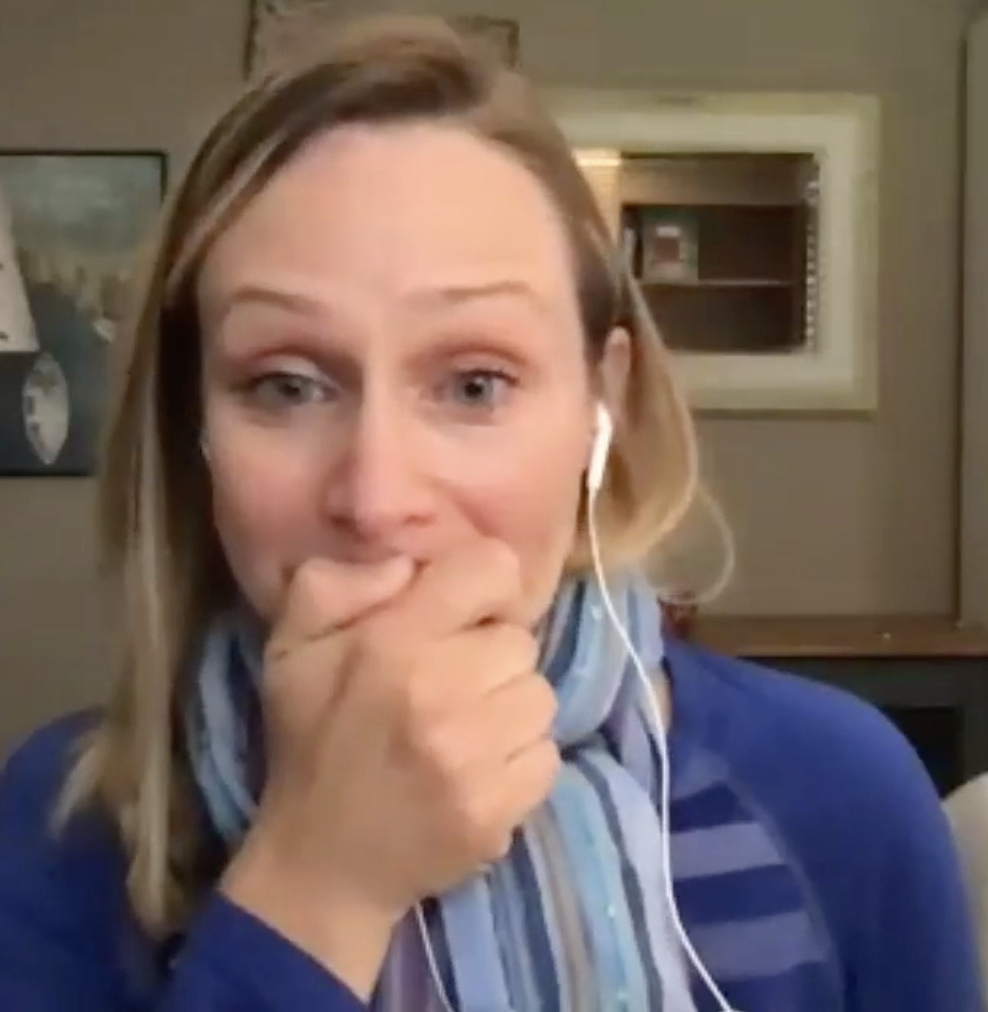
Sengul-Jones was nominated for perseverance in her research of women writing on the internet by her doctoral thesis committee: Lisa Cartwright (Communication, Visual Arts, Science Studies), Dan Hallin (UCSD Communication), Lilly Irani (UCSD Communication & Science Studies), Martha Lampland (UCSD Sociology & Science Studies), Liz Losh (William & Mary, English) and Kalindi Vora (UC Davis, Gender, Sexuality and Women’s Studies).
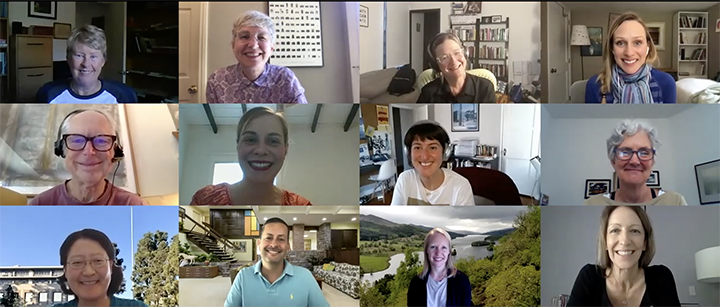
“She is a powerhouse,” said Cartwright, explaining that Sengul-Jones demonstrated determination in the face of challenges during her research of women online. “These are unfortunately the kinds of challenges that are not uncommon for women. She has not only faced these but became someone who modeled how we can move forward with advocacy and activism for women in computing,” Cartwright said.
Sengul-Jones earned her doctorate from the Department of Communication and Science Studies program in 2020. Her dissertation was an ethnographic and interpretative study of the labors of women freelance writers working from home in the 2010s.
The award was presented by Professor James Antony, Dean of the Graduate Division, along with representatives from the Office of Development, Academic Affairs, Academic Services, Financial Affairs, Department of Communication, and Science Studies Program. Dean Antony also noted that he was familiar with Sengul-Jones’s determination as a writer and researcher. Over a decade prior, he had been an advisor to Sengul-Jones during her undergraduate study at the University of Washington, where she earned a bachelor’s degree in Comparative History of Ideas.
During her tenure at UC San Diego in the Department of Communication, Sengul-Jones served as the chief designer and co-managing editor of the inaugural issues of Catalyst: Feminism, Theory, Technoscience, a peer-reviewed, open-access journal, with Dr. Cristina Mejia Visperas who is a fellow Communication alumna and Assistant Professor in the Annenberg School of Communication at the University of Southern California. Sengul-Jones participated in the launch of FemTechNet, a network of scholars, activists, and artists, co-organizing a state-wide conference funded by UC Humanities Research Initiative. In 2017, after spearheading activist efforts around gender and Wikipedia, joined OCLC (Online Computer Library Center) as a Wikipedian-in-Residence, demonstrating leadership as a public intellectual.
“We’re in a world that is quick to use quantification as a measure of authority,” said Irani. “The beauty of [her work] is it helps us see that the labor of writing makes community possible. By asking questions about how writing gets done, who gets funded, and using creative methodologies, [this is] also the story how we come together. This is why [her] writing matters for the future.”
Sengul-Jones and committee member Professor Martha Lampland initially bonded over their shared connections to Central and Eastern Europe where they have both lived and conducted research.
“The direction she has taken her work on women’s labor is exciting, it’s also relevant because she is a part of much broader intellectual networks—these are important in our current climate,” said Lampland.
The year 2020 presents many challenges, particularly for new graduates. Sengul-Jones said the award will help offset the costs of pursuing work as an independent writer and researcher this academic year.
“I’m deeply grateful. Thank you to my advisors, my colleagues, and freelance writers, who are the co-collaborators. I look forward to paying it forward and sharing my research in future publications,” she said. “To echo Irani, I take this honor as a challenge to ‘write, and write more, about the dynamics of our social worlds from a humanistic perspective.’”
Learn more about Sengul-Jones and her current projects at her website: https://monikasjones.com/
Congratulations to Dr. Monika Sengul-Jones!